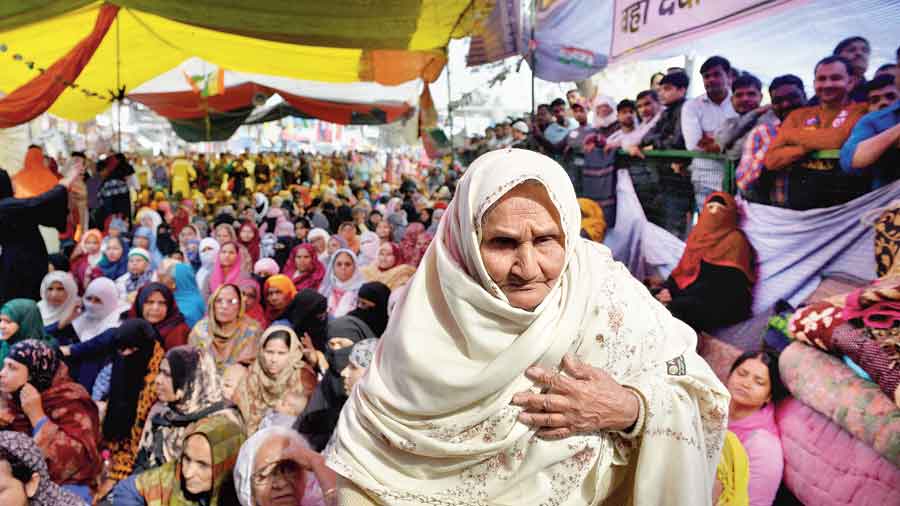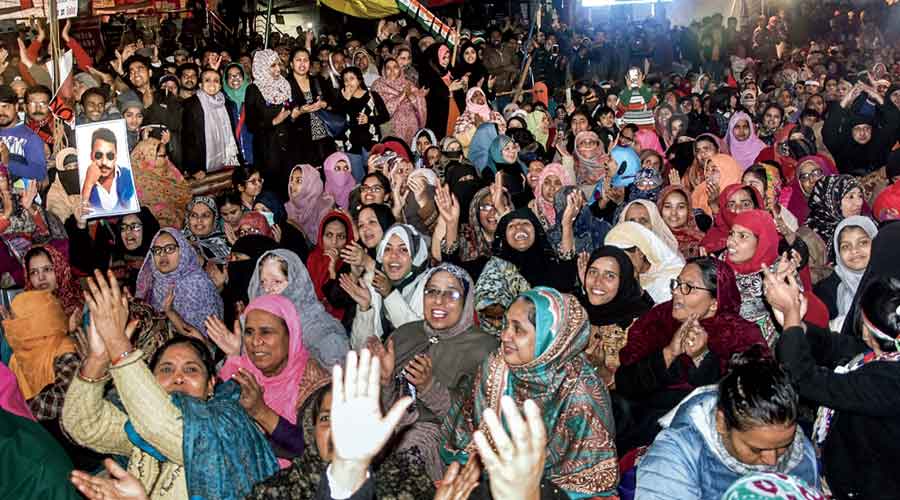The Supreme Court on Wednesday disapproved of the Shaheen Bagh protests saying “demonstrations expressing dissent have to be in designated places alone” and that citizens’ fundamental rights are coexistent with duties, while also stressing governments’ need to tolerate opposition in a democracy.
“In a democracy, the opposition is not only tolerated as constitutional but must be maintained because it is indispensable,” the apex court said quoting American writer Walter Lippmann.
Hundreds of ordinary women, led by a band of grandmothers and some accompanying their young children, had blocked a road at Shaheen Bagh in New Delhi in a peaceful sit-in against the new citizenship matrix.
They had resisted threats and abuse from ruling party politicians and firing by a youth to continue for over 100 days from mid-December till the lockdown, when most of the demonstrators left and the rest were thrown out by police.
“The present case was not even one of protests taking place in an undesignated area, but was a blockage of a public way which caused grave inconvenience to commuters,” the bench of Justices Sanjay Kishan Kaul, Aniruddha Bose and Krishna Murari said.
“We cannot accept the plea of the applicants that an indeterminable number of people can assemble whenever they choose to protest.”
The judgment came on a batch of petitions that an advocate, Amit Sahni, and others had filed during the Shaheen Bagh protest seeking the removal of the protesters.
“While appreciating the existence of the right to peaceful protest against a legislation (keeping in mind the words of Pulitzer Prize winner, Walter Lippmann, who said ‘In a democracy, the opposition is not only tolerated as constitutional, but must be maintained because it is indispensable’), we have to make it unequivocally clear that public ways and public spaces cannot be occupied in such a manner and that too indefinitely,” the judgment, written by Justice Kaul, said.
“Democracy and dissent go hand in hand, but then the demonstrations expressing dissent have to be in designated places alone.”
Dissent against colonial rule is different from dissent in a democracy, where rights come together with duties, the court said.
“The erstwhile mode and manner of dissent against colonial rule cannot be equated with dissent in a self-ruled democracy. Our constitutional scheme comes with the right to protest and express dissent, but with an obligation towards certain duties,” the apex court said.
It said Article 19 gave citizens the right to speak freely and assemble peacefully “and protest against the actions or inactions of the State”.
“The same must be respected and encouraged by the State, for the strength of a democracy such as ours lies in the same. (However) these rights are subject to reasonable restrictions, which… pertain to the interests of the sovereignty and integrity of India and public order, and to the regulation by the concerned police authorities in this regard,” the court said.
It cited its 2018 judgment in Mazdoor Kisan Shakti Sangathan vs Union of India that said each fundamental right must be balanced with every other contrasting right.
The top court frowned on Delhi High Court’s failure to pass suitable orders when the petitioners had initially approached it, seeking the protesters’ removal. The high court had left the matter to the police’s discretion.
“The high court should have monitored the matter rather than disposing of the writ petition and creating a fluid situation,” the apex court said.
It referred to the Covid-19 pandemic as the “hand of God” that had caused the protest to end. “The hand of God subsequently intervened and overtook the situation as not only our country, but also the world grappled with the coronavirus pandemic,” it said.
“Thus, really speaking, the reliefs in the present proceedings have worked themselves out.”











